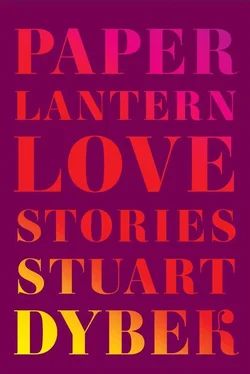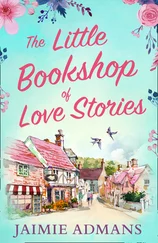In the opera, that aria is sung by Nemorino, a peasant who has spent his last cent on an elixir he hopes will make the wealthy woman he loves love him in return. Nemorino sees a tear on her cheek and takes it as a sign that the magic is working. Watching Emil sing his proverbial heart out at a coffeehouse, Clair, too, looked about to cry. He’s singing for us, she said. Until that moment, I hadn’t recognized the obvious: she’d been in love with Emil since Juilliard—years of loving the impossible.
Emil’s voice rose to the climax and Clair mouthed the aria’s last line to me in English, I could die! Yes, I could die of love , while Emil held the final amor on an inexhaustible breath.
The espresso machine all but levitated on a cushion of steam, and patrons sprang to a standing ovation that ended abruptly when Emil, oblivious to the blood drooling onto his white apron from the left nostril of his coke-crusted nose, flipped them off as if conducting music only he could hear.
After Figaro’s became the third job Emil lost that year, Clair decided to risk desperate measures. Emil was broke. His doomed flings with danseurs had left him without an apartment of his own. The actors in Cahoots had grown openly critical of his leadership. Refusing to crash with increasingly disillusioned friends, Emil slept at the theater, whose heat was turned off between performances.
He’s out of control, we’re watching slo-mo suicide, Clair said, enlisting me in a small group of theater people for an intervention. It was an era in New York when the craze for interventions seemed in direct proportion to the sale of coke. Emil regarded interventions as a form of theater below contempt. To avoid his suspicion, Clair planned for it to take place at the private cast party following the opening of the show Emil had worked obsessively over—a takeoff on The Elixir of Love .
In the Donizetti opera, Dr. Dulcamara, a salesman of quack remedies, arrives in a small Basque town and encounters Nemorino, who requests a potion of the kind that Tristan used to win Isolde. Dulcamara sells him an elixir that’s nothing more than wine.
In Emil’s script, the town is Winesburg, Ohio, an all-American community of secret lusts and repressed passion. The townsfolk sing of their need for a potion to release them from lives of quiet desperation. Emil played the traveling salesman—not Dr. Dulcamara, but Willy Loman. As Willy sings his aria “Placebo,” sexually explicit ads for merchandise flash across a screen, attracting the townsfolk. They mob Nemorino, and the bottle of bogus elixir is torn from hand to hand. Its mere touch has them writhing lewdly, unbuttoning their clothes, and when the bottle breaks they try to lap elixir from the stage, pleading for more, threatening to hang Willy Loman by his tie if he doesn’t deliver.
Willy finds a wine bottle beside a drunk, comatose and sprawled against a dumpster. As scripted, the bottle is half filled with wine, and Emil is only to simulate urinating into it. But that night, onstage, he drained the bottle, unzipped his trousers, and, in view of the audience, pissed.
“Here’s your elixir of love!” he shouted, raising the bottle triumphantly as he stepped back into the town square.
The script has the townsfolk passing the elixir, slugging it down, and falling madly, indiscriminately in love. Willy demands to be paid, and they rough him up instead. The play was to end with the battered salesman suffering a heart attack as an orgy swirls around him. In an aria sung with his dying breath, he wonders if he’s spent his moneygrubbing life unwittingly pissing away magic.
Script notwithstanding, opening night was pure improv, pure pandemonium. When the actors realized Emil had actually given them piss to drink, the beating they gave him in return wasn’t simulated, either. Emil fought back until, struck with the bottle, he spit out pieces of tooth, then leaped from the stage, ran down the center aisle, and out of the theater. The audience thought it was the best part of the show.
The cast party went on backstage without Emil. Stunned and dejected, the actors knew it was the end of Cahoots and on that final evening clung to each other’s company. Around midnight, Clair pressed me into a corner to say, You don’t belong at this wake. We stood kissing, and then she gently pushed me away and whispered, Go. One word, perfectly timed to say what we had avoided saying aloud, but both knew: whatever was between us had run its course. Instead of goodbye, I said what I’d told her after our first night together and had repeated like an incantation each time since: Thank you.
Emil showed up as I was leaving. He still wore his bloodied salesman’s tie. His swollen lip could have used stitches, but he managed to swig from a bottle of vodka.
Drunk on your own piss? asked Glen, who’d played Nemorino and had thrown the first punch onstage.
Shhh, no need for more, Clair said. She took Emil’s arm as if to guide him. Sit down with us, she told him. Emil shook off her hand. Judas, he said, and Clair recoiled as if stung.
Keeping a choke hold on the bottle, Emil climbed up on a chair.
I’ve come to say I’m sorry, he announced, and to resign as your artistic director. I guessed you all might still be hanging around, given that without Cahoots none of you has anywhere else to perform.
Clair, blotting her smeared makeup, began to sob quietly, hopelessly, as a child cries. Emil continued as if, like so much else between them, it were a duet. Sweat streaked his forehead as it did when he sang.
Did you think I didn’t know about the pathetic little drama you’d planned for me tonight by way of celebration? he asked. So, yes, I’m sorry, sorry to deprive you of the cheesy thrill of your judgmental psycho-dabbling. But then what better than your dabbling as actors to prepare you to dabble in others’ lives? Was it so threatening to encounter someone willing to risk it all, working without a net, living an opera as if it’s life, which sometimes—tonight, for instance—apparently means being condemned to live life as if it’s a fucking opera?
* * *
The last friend of mine to say he was living life like an opera was Cole.
He said it during a call to wish me a happy birthday, one of those confiding phone conversations we’d have after being out of touch—not unusual for a friendship that went back decades to when we were in high school. Twenty years earlier, Cole had beat me in the state finals, setting a high school record for the high hurdles. We were workout buddies the summer between high school and college, which was also the summer I worked downtown at a vintage jazz record shop. Cole would stop by to spin records while I closed up. He’d been named for Coleman Hawkins and could play Hawkins’s famous tenor solo from “Body and Soul” note for note on the piano. Cole played the organ each Sunday at the Light of Deliverance, one of the oldest African-American churches on the South Side. His grandfather was the minister. I’d close the record shop and we’d jog through downtown to a park with a track beside the lake, and after running, we’d swim while the lights of the Gold Coast replaced a lingering dusk. His grandfather owned a cabin on Deep Lake in northern Michigan, and Cole invited me up to fish before he left for Temple on a track scholarship. It was the first of our many fishing trips over the years to come.
Cole lived in Detroit now, near the neighborhood of the ’67 riots, where he’d helped establish the charter school that he’d written a book about. He’d spent the last four years as a community organizer and was preparing to run for public office. When he’d married Amina, a Liberian professor who had sought political asylum, “Body and Soul” was woven into the recitation of their vows. The wedding party wore dashikis, including me, the only white groomsman.
Читать дальше












